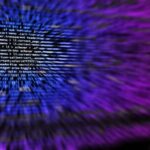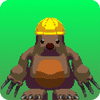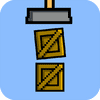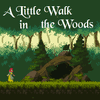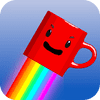Tools You Need to Start Learning Programming: Evolution and Essentials
Introduction
Have you ever wondered what tools you need to start your journey into programming? Over the years, the landscape of tools—from software to hardware—has evolved significantly. In this comprehensive guide, we’ll explore the essential tools you need to begin learning programming, how these tools have changed over time, and what you should consider as a novice programmer diving into this exciting field.
Understanding the Basics
Before we delve into the specific tools, let’s clarify what programming entails. Programming is the art of writing instructions for computers to perform tasks. Whether you’re interested in developing websites, creating mobile apps, or designing games, programming forms the backbone of modern technology.
Evolution of Programming Tools
From Text Editors to Integrated Development Environments (IDEs)
In the early days of programming, developers relied on simple text editors like Notepad to write code. These editors provided basic functionalities such as syntax highlighting and text formatting, but they lacked advanced features.
Modern Era: Integrated Development Environments (IDEs)
Today, IDEs like Visual Studio Code, IntelliJ IDEA, and Eclipse have revolutionized the programming landscape. These tools offer comprehensive features such as code auto-completion, debugging capabilities, version control integration, and plugin support. IDEs streamline the development process, making it easier for beginners to write, test, and debug code efficiently.
Hardware Requirements: Then and Now
Past: Basic Computing Power
In the early days, programming required access to a computer with minimal computing power. Personal computers like the Commodore 64 and early IBM PCs were sufficient for basic programming tasks.
Present: High-Performance Machines
Today, the hardware requirements for programming have expanded. Developers often require computers with sufficient RAM, powerful processors, and high-resolution displays to handle complex coding tasks, testing environments, and resource-intensive applications.
Essential Software Tools for Beginners
Text Editors: A good text editor is essential for writing code. Beginners can start with lightweight editors like Sublime Text or Atom, which offer simplicity and ease of use. These editors provide syntax highlighting, code folding, and plugin support, making them ideal for learning programming languages.
Integrated Development Environments (IDEs): IDEs cater to both novice and experienced programmers by providing advanced features such as code debugging, intelligent code completion, and project management tools. IDEs like Visual Studio Code and JetBrains IntelliJ IDEA are popular choices due to their versatility and extensive plugin ecosystems.
Version Control Systems (VCS): Understanding version control is crucial for collaborative programming. Tools like Git and platforms like GitHub enable developers to track changes to their code, collaborate with team members, and revert to previous versions if necessary. Version control is a fundamental skill for any programmer entering the industry.
Virtual Machines and Containers: For software development that requires testing across different environments, virtual machines (VMs) and containers (e.g., Docker) are invaluable tools. These technologies allow developers to create isolated environments to test applications on various operating systems and configurations without affecting their local machines.
In this first part of our guide, we’ve explored the evolution of programming tools, from the humble beginnings of text editors to the powerful integrated development environments and virtualization technologies available today. Understanding these tools and how they have evolved over time is essential for any aspiring programmer.
In the next section, we’ll dive deeper into specific programming languages and frameworks that beginners can explore to kickstart their learning journey effectively. Stay tuned as we continue to unravel the world of programming tools and resources designed to empower you on your coding adventure.
Exploring Essential Programming Languages and Frameworks for Beginners
In the second part of our comprehensive guide to programming tools, we’ll delve into essential programming languages, frameworks, and additional tools that beginners should consider when starting their journey into programming. Understanding these foundational elements will provide you with a solid footing to build upon as you explore different areas of software development.
Choosing the Right Programming Language
Python: Simplicity and Versatility
Python has gained immense popularity among beginners and seasoned developers alike due to its simplicity, readability, and versatility. It’s widely used in web development, scientific computing, data analysis, artificial intelligence, and automation. Python’s clear syntax and extensive libraries make it an excellent choice for learning programming fundamentals without overwhelming complexity.
JavaScript: Essential for Web Development
JavaScript is the language of the web. It’s essential for front-end development, allowing developers to create interactive and dynamic user interfaces. Together with HTML5 and CSS3, JavaScript forms the backbone of modern web applications. Beginners can start with JavaScript to understand core programming concepts such as variables, functions, loops, and conditional statements.
Java: Scalability and Reliability
Java is known for its scalability, platform independence, and reliability. It’s widely used in enterprise-level applications, Android app development, and large-scale systems. Java’s strict syntax and object-oriented programming principles help beginners grasp fundamental concepts like classes, inheritance, polymorphism, and interfaces.
Additional Tools and Frameworks
HTML5 and CSS3: Front-End Essentials
HTML5 and CSS3 are essential for creating the structure and styling of web pages respectively. HTML5 introduces new elements and APIs for multimedia, graphics, and interactive content, making it indispensable for modern web development. CSS3 enhances the visual presentation of HTML elements with features like animations, transitions, and responsive design.
Frameworks: Simplifying Development
Frameworks provide pre-written code and libraries that streamline development tasks, reduce redundancy, and enhance productivity. For web development, frameworks like React.js (for building user interfaces), Angular (for building single-page applications), and Flask or Django (for server-side web development with Python) are popular choices among beginners and professionals alike.
Integrated Development Environments (IDEs) and Text Editors
Choosing the right IDE or text editor can significantly impact your coding experience. IDEs like Visual Studio Code, JetBrains IntelliJ IDEA, and Eclipse offer robust features such as code completion, debugging tools, version control integration, and plugin support. For beginners, these features can enhance productivity and provide a seamless coding environment.
In this part of our guide, we’ve explored essential programming languages like Python, JavaScript, and Java, as well as foundational tools like HTML5, CSS3, and popular frameworks. Choosing the right tools and languages based on your interests and career goals is crucial for building a strong foundation in programming.
In the next section of our guide, we’ll discuss best practices for learning programming effectively, resources for further exploration, and tips to stay motivated on your programming journey. Stay tuned as we conclude our exploration of essential programming tools and resources designed to empower you in your coding endeavors.
Best Practices for Learning Programming Effectively
In the final part of our comprehensive guide to programming tools and resources, we’ll explore best practices for learning programming effectively, essential resources for continued learning, and tips to keep you motivated on your journey to becoming a proficient programmer.
Effective Learning Strategies
1. Start with Fundamentals: Begin by understanding basic programming concepts such as variables, data types, loops, conditional statements, and functions. This foundation is crucial regardless of the programming language you choose to specialize in.
2. Hands-on Practice: Programming is a skill that improves with practice. Apply what you learn by working on small projects, solving coding challenges, and experimenting with different features of the language or framework you’re learning.
3. Build Projects: Practical application reinforces learning. Start with simple projects like creating a calculator, a to-do list application, or a basic game. As you gain confidence, tackle more complex projects to challenge yourself and expand your skills.
4. Learn from Documentation and Tutorials: Programming languages and frameworks often have extensive documentation and tutorials available online. Use these resources to deepen your understanding of language features, best practices, and common pitfalls.
5. Seek Community and Support: Join online forums, programming communities (e.g., Stack Overflow), and local meetups or workshops. Engaging with peers and experienced developers can provide valuable insights, feedback, and encouragement.
Essential Resources for Continued Learning
1. Online Courses and Platforms: Platforms like Coursera, edX, Udemy, and Codecademy offer structured courses in various programming languages, frameworks, and computer science fundamentals. These courses often include video lectures, quizzes, and hands-on projects.
2. Books and eBooks: Books remain valuable resources for in-depth exploration of programming languages and concepts. Look for well-reviewed titles on topics that align with your interests and learning goals. eBooks provide convenient access to resources that you can read anytime, anywhere.
3. Coding Challenges and Practice Sites: Websites like LeetCode, HackerRank, and CodeSignal offer coding challenges and competitions that help you sharpen your problem-solving skills and prepare for technical interviews. These platforms often feature problems categorized by difficulty and specific programming topics.
4. Open Source Projects: Contributing to open source projects allows you to collaborate with developers worldwide, gain practical experience, and build a portfolio of work. Start with projects that interest you and align with your skills, and gradually expand your contributions over time.
Tips for Staying Motivated
1. Set Clear Goals: Define specific goals for your programming journey, such as learning a new language, completing a project, or mastering a specific skill. Break larger goals into smaller, manageable tasks to track your progress effectively.
2. Embrace Challenges: Programming can be challenging, especially when tackling complex concepts or debugging issues. View challenges as opportunities to learn and grow, and celebrate your successes, no matter how small.
3. Stay Curious and Updated: Technology evolves rapidly. Stay curious about new programming languages, frameworks, and industry trends. Follow reputable blogs, podcasts, and social media accounts to stay informed and inspired.
4. Take Breaks and Stay Balanced: Programming requires focus and mental energy. Take regular breaks, stay physically active, and maintain a healthy work-life balance to prevent burnout and maintain productivity.
Conclusion
Congratulations on completing our guide to essential programming tools and resources! By understanding the evolution of programming tools, exploring foundational languages and frameworks, and adopting effective learning strategies, you’re well-equipped to embark on your programming journey.
Remember, learning programming is a continuous process of exploration and discovery. Embrace the challenges, leverage available resources, and stay committed to improving your skills. Whether you aspire to develop games, build web applications, or pursue a career in software engineering, the knowledge and skills you’ve gained will serve as a solid foundation for success.
Thank you for joining us on this educational journey. We wish you all the best in your programming endeavors. Happy coding!
















